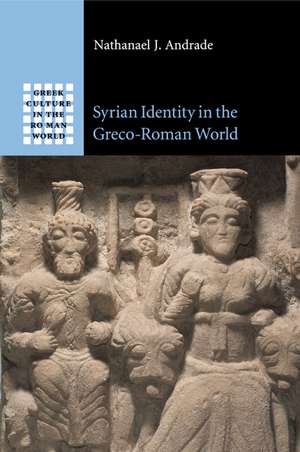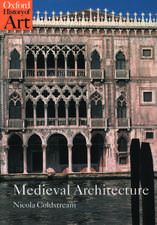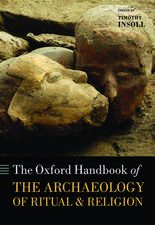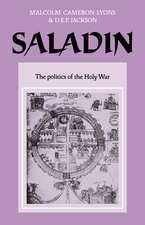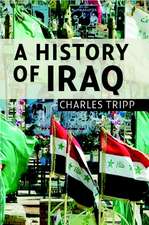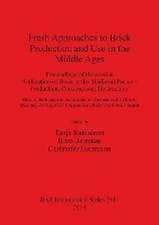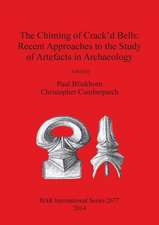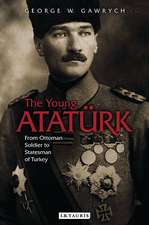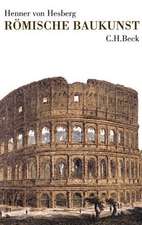Syrian Identity in the Greco-Roman World: Greek Culture in the Roman World
Autor Nathanael J. Andradeen Limba Engleză Paperback – 25 apr 2018
| Toate formatele și edițiile | Preț | Express |
|---|---|---|
| Paperback (1) | 325.01 lei 43-57 zile | |
| Cambridge University Press – 25 apr 2018 | 325.01 lei 43-57 zile | |
| Hardback (1) | 760.82 lei 43-57 zile | |
| Cambridge University Press – 24 iul 2013 | 760.82 lei 43-57 zile |
Din seria Greek Culture in the Roman World
-
 Preț: 235.13 lei
Preț: 235.13 lei -
 Preț: 201.40 lei
Preț: 201.40 lei -
 Preț: 312.43 lei
Preț: 312.43 lei -
 Preț: 315.25 lei
Preț: 315.25 lei -
 Preț: 215.75 lei
Preț: 215.75 lei - 8%
 Preț: 530.69 lei
Preț: 530.69 lei -
 Preț: 286.30 lei
Preț: 286.30 lei -
 Preț: 206.57 lei
Preț: 206.57 lei - 14%
 Preț: 733.20 lei
Preț: 733.20 lei -
 Preț: 364.80 lei
Preț: 364.80 lei - 14%
 Preț: 755.69 lei
Preț: 755.69 lei -
 Preț: 287.28 lei
Preț: 287.28 lei -
 Preț: 401.19 lei
Preț: 401.19 lei -
 Preț: 320.90 lei
Preț: 320.90 lei -
 Preț: 324.03 lei
Preț: 324.03 lei - 11%
 Preț: 695.06 lei
Preț: 695.06 lei -
 Preț: 324.40 lei
Preț: 324.40 lei - 14%
 Preț: 777.00 lei
Preț: 777.00 lei -
 Preț: 258.44 lei
Preț: 258.44 lei -
 Preț: 340.34 lei
Preț: 340.34 lei - 11%
 Preț: 698.50 lei
Preț: 698.50 lei -
 Preț: 283.63 lei
Preț: 283.63 lei - 14%
 Preț: 885.74 lei
Preț: 885.74 lei -
 Preț: 323.05 lei
Preț: 323.05 lei -
 Preț: 290.98 lei
Preț: 290.98 lei - 14%
 Preț: 768.27 lei
Preț: 768.27 lei -
 Preț: 448.80 lei
Preț: 448.80 lei -
 Preț: 287.48 lei
Preț: 287.48 lei - 14%
 Preț: 766.25 lei
Preț: 766.25 lei -
 Preț: 284.78 lei
Preț: 284.78 lei - 11%
 Preț: 696.26 lei
Preț: 696.26 lei - 11%
 Preț: 695.59 lei
Preț: 695.59 lei - 14%
 Preț: 689.49 lei
Preț: 689.49 lei - 11%
 Preț: 694.04 lei
Preț: 694.04 lei - 14%
 Preț: 758.22 lei
Preț: 758.22 lei - 11%
 Preț: 704.99 lei
Preț: 704.99 lei
Preț: 325.01 lei
Nou
Puncte Express: 488
Preț estimativ în valută:
62.21€ • 67.60$ • 52.29£
62.21€ • 67.60$ • 52.29£
Carte tipărită la comandă
Livrare economică 21 aprilie-05 mai
Preluare comenzi: 021 569.72.76
Specificații
ISBN-13: 9781108456531
ISBN-10: 1108456537
Pagini: 442
Ilustrații: 22 b/w illus. 7 maps
Dimensiuni: 153 x 230 x 24 mm
Greutate: 0.59 kg
Editura: Cambridge University Press
Colecția Cambridge University Press
Seria Greek Culture in the Roman World
Locul publicării:Cambridge, United Kingdom
ISBN-10: 1108456537
Pagini: 442
Ilustrații: 22 b/w illus. 7 maps
Dimensiuni: 153 x 230 x 24 mm
Greutate: 0.59 kg
Editura: Cambridge University Press
Colecția Cambridge University Press
Seria Greek Culture in the Roman World
Locul publicării:Cambridge, United Kingdom
Cuprins
Introduction: signification and cultural performance in Roman imperial Syria; Part I. Greek Poleis and the Syrian Ethnos (2nd century BCE–1st century CE): 1. Antiochus IV and the limits of Greekness under the Seleucids (175–63 BCE); 2. The theater of the frontier: local performance, Roman rulers (63–31 BCE); 3. Converging paths: Syrian Greeks of the Roman Near East (31 BCE–CE 73); Part II. Greek Collectives in Syria (1st–3rd centuries CE): 4. The Syrian Ethnos' Greek cities: dispositions and hegemonies (1st–3rd centuries CE); 5. Cities of imperial frontiers (1st–3rd centuries CE); 6. Hadrian and Palmyra: contrasting visions of Greekness (1st–3rd centuries CE); 7. Dura-Europos: changing paradigms for civic Greekness; Part III. Imitation Greeks: Being Greek and Being Other (2nd and 3rd centuries CE): 8. Greeks write Syria: performance and the signification of Greekness; 9. The theater of empire: Lucian, cultural performance, and Roman rule; 10. Syria writes back: Lucian and On the Syrian Goddess; 11. The ascendency of Syrian Greekness and Romanness; Conclusion.
Recenzii
'An important book … an essential point of reference for anyone reflecting on what it meant to be 'Greek' in the ancient world.' The Times Literary Supplement
'… [this] book is of great importance in both its method and its content for the study of Roman Syria and the surrounding region from the Seleucid period through the early Roman Empire. Scholars will benefit a great deal from Andrade's impressive contribution to, and reshaping of, these ongoing discussions.' Christine Shepardson, Bryn Mawr Classical Review
'… [this] book is of great importance in both its method and its content for the study of Roman Syria and the surrounding region from the Seleucid period through the early Roman Empire. Scholars will benefit a great deal from Andrade's impressive contribution to, and reshaping of, these ongoing discussions.' Christine Shepardson, Bryn Mawr Classical Review
Notă biografică
Descriere
This book proposes a new means of identifying how Greek and Syrian identities were expressed in the Hellenistic and Roman Near East.
